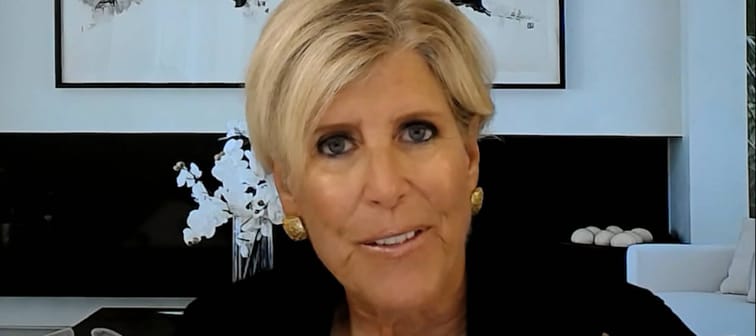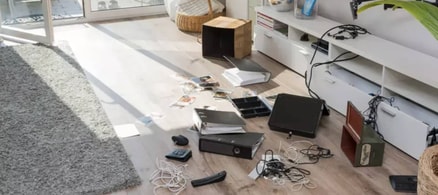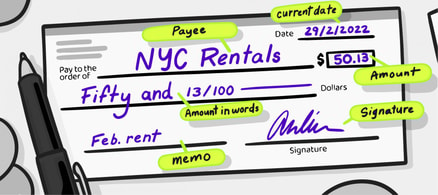Everything is far more expensive
A recent report from SecureSave revealed the alarming impact high inflation and rising costs are having on Americans’ savings, with a staggering 67% of Americans unable to cover an unexpected $400 expense.
“Inflation makes everything far more expensive,” says Orman. “It’s not just the eggs or the chicken [...] but your car insurance premiums, your home insurance premiums, property taxes, everything.”
Covering an unexpected expense on top of that is just too much for many American households — especially for the 74% who claim to be living paycheck to paycheck, according to the SecureSave survey.
“You don't have any money saved,” says Orman. “You have nothing, and then something hits you — and what do you do? You put it on your credit card, you can't pay it in full.”
It’s the “worst time right now” to wrack up a lot of credit card debt because of how far the Feds have hiked interest rates in the past year, according to Orman.
Instead, she encourages people to take advantage of an employer-sponsored emergency savings account, or ESA — a workplace plan that deducts a small amount of money from your monthly paycheck to create an emergency fund. Often employers will incentivize uptake by matching your contributions.
Watch Now: Full interview: Suze Orman and Devin Miller delve into why so many Americans aren't prepared for their next financial emergency — and how to change that
Streamline your debt repayment
Having a single loan to pay off makes it easier to manage your payments, and you can often get a better interest rate than what you might be paying on credit cards and car loans.
Fiona is an online marketplace offering personalized loan options based on your unique financial situation.
When you consolidate your debt with a personal loan through Fiona, you can roll your payments into one monthly installment. Find a lower interest rate and pay down your debt faster with Fiona today.
Find your rateEmergency saving accounts
Orman — who co-founded SecureSave to help individuals build emergency savings through an employer benefits platform — says having money in an ESA can help you to keep up your mortgage and auto loan payments — and it can stop you running up “crushing” high-interest credit card debt.
“This is the starter block,” she says. “Obviously, we don't expect that you have eight to 12 months of an emergency fund. This is where you start to learn how to save.”
Orman’s hope is to “change the saving habits of everybody in this world.”
She says that once people learn what it feels like to be financially secure — and they enjoy that feeling — they will apply that learning to other areas of saving or retirement planning, such as signing up for a Roth IRA or 401(k) plan.
“The place to start is with an emergency savings account, especially with your employer matching it, [so] that you can take care of the little things that totally put you out of sync with everything else,” she says.
The results speak for themselves, according to SecureSave CEO and co-founder Devin Miller, who joined Orman in speaking to Moneywise on May 16.
The average SecureSave user saves an average of $103 a month toward an ESA, reaching $400 after four months of saving.
“That doesn't sound like a lot, but the average emergency … is maybe only a couple hundred dollars,” says Miller. “Very small things will trigger this big negative snowball in people's financial lives — and so creating that starting point of saving is so critical.”
‘Ripple effects across the economy’
“When families’ emergency savings are depleted, it has ripple effects across our economy,” warns Orman.
This is especially true if Americans feel the need to raid their retirement savings to cover an emergency expense — something personal finance experts have deemed one of the worst financial fumbles.
The SecureSave survey found that 61% of Americans either stopped contributing to their retirement savings , or never had retirement savings at all, as a result of their financial situation. Of those that did have a retirement fund, 47% have stopped contributing amid spikes in inflation and interest rates.
“If you want to help people be better prepared for retirement, they need to have more liquid savings that they can go to,” says Miller. “We need to get people better involved in retirement accounts at work, keep money in those accounts … and the best way to do that is to get that extra separate bucket of dollars for emergencies.”
Getting Americans engaged with ESAs is “probably the biggest bang for the buck” that employers can do to both improve long-term retirement readiness but also improve people's day-to-day ability to withstand financial shocks, according to Miller.
“That's going to create a tremendous positive domino effect for our society,” he adds.
Sponsored
Follow These Steps if you Want to Retire Early
Secure your financial future with a tailored plan to maximize investments, navigate taxes, and retire comfortably.
Zoe Financial is an online platform that can match you with a network of vetted fiduciary advisors who are evaluated based on their credentials, education, experience, and pricing. The best part? - there is no fee to find an advisor.







